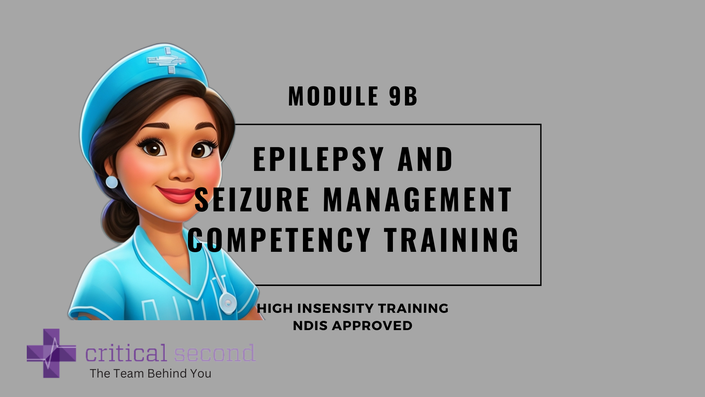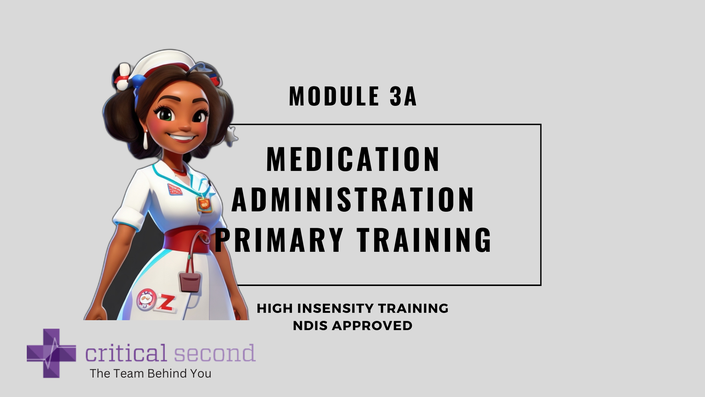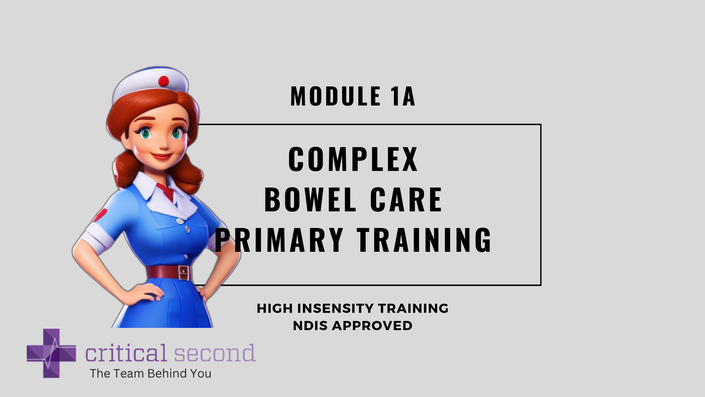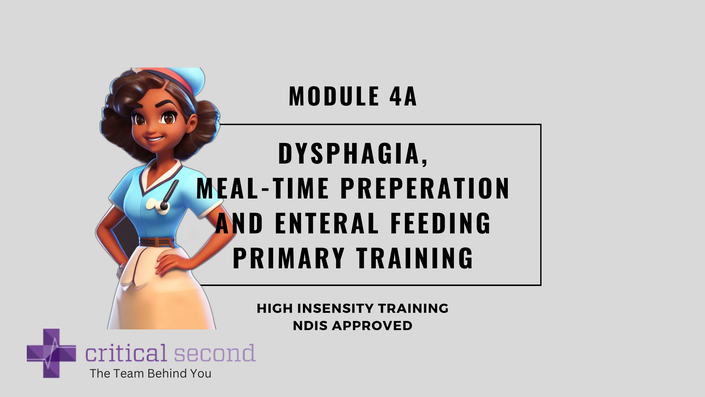Help People to Manage Epilepsy Smartly and Safely
This training ensures safety and dignity, fostering trust and respectful care. Ultimately, it's a vital component of comprehensive healthcare education that enables positive outcomes and upholds compassionate care principles.

The Importance of This Course
Epilepsy is a common neurological condition, and both nurses and support workers often encounter people with epilepsy in various healthcare settings. Comprehensive training equips you with the knowledge to recognise and respond to different types of seizures, ensuring prompt and appropriate care during a somebody's seizure event. Effective seizure management can prevent injury, alleviate distress, and reduce the risk of complications, such as status epilepticus, which can be life-threatening.
Furthermore, training in epilepsy enables you to provide valuable education and support to clients and their families. People with epilepsy often require assistance in managing their condition, adhering to medications, and implementing lifestyle adjustments. Support staff who are well-versed in epilepsy care can offer guidance, answer questions, and provide emotional support, ultimately improving quality of life. In summary, epilepsy training is essential for delivering safe and compassionate care, enhancing outcomes, and empowering individuals with epilepsy to lead fulfilling lives.
NDIS TRAINING STANDARDS AND REQUIREMENTS
· Pre-reading and Module A completed (ideally before you start work, to learn best practice), this includes completion of the quiz as evidence of knowledge and understanding. Primary care document issued
· Module A remains evergreen if Learning Discovery Pathways (preferably per customer) are signed off by an approved RN and Module B is completed (in-line with 3 month standard probationary period). This is where a competency document is issued. Also, hence, the loop only remains open if you complete your competencies
· If not completed within 12 months, Module A will be revoked as you have not met NDIS compulsory training standards. You will need to re-apply
· In-line with this criteria, you should only ever have to do Module B once, then it moves to the Module C refresher as part of an annual subscription model with reminders
YOUR DELIVERABLES TO THE NDIS
· PRIMARY CARE DOCUMENT (knowledge), encompassing best practice standards
· Client induction- LEARNING DISCOVERY PATHWAY (skill), identifying customer individuality
· COMPETENCY DOCUMENT (ethics), the marriage of worker, customer and NDIS
Epilepsy and Seizure Management Curriculum
- Epilepsy and Seizure mangement -Educational Material
- Quiz- Epilepsy and Seizure Management
- Learning Discovery Pathway for Epilepsy and Seizure management- (to print off)
- Vagal Nerve Stimulation + DBS & RNS
- Quiz- VNS DBS RNS
- Easy Read document for family and friends, pdf. -Epilepsy
- Learning Discovery Pathway for VNS DBS RNS
THE STEPS
Upon completion of any Primary Training
Module A opens the gateway to working hands-on with high intensity customers
MODULE A | COMPLETE PRIMARY TRAINING | Engage and reflect on learned content and your new deepened understanding.
Client induction-
LEARNING DISCOVERY PATHWAY | Real-world Applications and Risk Mitigation - (The Gateway is Open).
Commence work with your customers. Undertake care with new skills and knowledge.
You have been shown industry practice standards, now follow the Learning Pathways to display your skills and if needed identify differences to practice standards.
Help your customer or identify risk, this is what makes each person unique. If the customer does it differently that's ok. Differences are acknowledged, mitigated where possible and recorded in the risk register.
(Print out this form and complete as evidence of your knowledge and skills)
____________________________________________________
MODULE B | DECLARATION OF COMPETENCE | NDIS High Intensity Descriptor Practice Standards | - Reaffirm foundational skills, meet industry standards and protocols.
Competency issued when all above criteria met (go to Module 9B, see below).
____________________________________________________
C MODULES | ANNUAL REFRESHER | Professional Development, Career Planning, and Lifelong Learning | - Inspire ongoing learning and professional growth, while also staying up-to-date with your credentials via our Annual Competency Refreshers.
Compulsory to remain high intensity competent (go to Module 9C, see below).
Suggestion: Repeat Primary Training before completing this module. Industry updates are added to Primary Training.
TRAIN THE TRAINER | Peer Collaboration
Projects - Foster collaboration
and problem-solving skills. Contact a Critical Second team member about our
Train the Trainer programs and become your workplace expert.
Declaration of Competence
and Annual Refresher
Module 9B - Epilepsy and Seizure Management Competence
Module 9C - Annual Refresher
NDIS Approved Competence
Having the knowledge and skills to assess and respond effectively to seizures is essential for people's safety. It allows you to provide immediate care during a seizure episode, minimising the risk of injury, ensuring adequate oxygenation, and preventing complications like status epilepticus. Additionally, proper training empowers you to differentiate between various seizure types, which is important for accurate diagnosis and treatment.
Furthermore, seizure management training plays a vital role in a clients education and support. Many individuals with epilepsy require guidance on medication management, lifestyle adjustments, and seizure triggers.


12 Monthly Refresher Required by NDIS
The skills and knowledge in High Intensity supports present some of the highest risks for participants. Regularly refreshing your knowledge and skills is an essential part of staying competent and up-to-date in any field, the NDIS requires a refresher every 12 months as new medical knowledge can change from time to time to updated practices.
You might like these?
Diversify your knowledge and become a more well-rounded nurse or support worker






